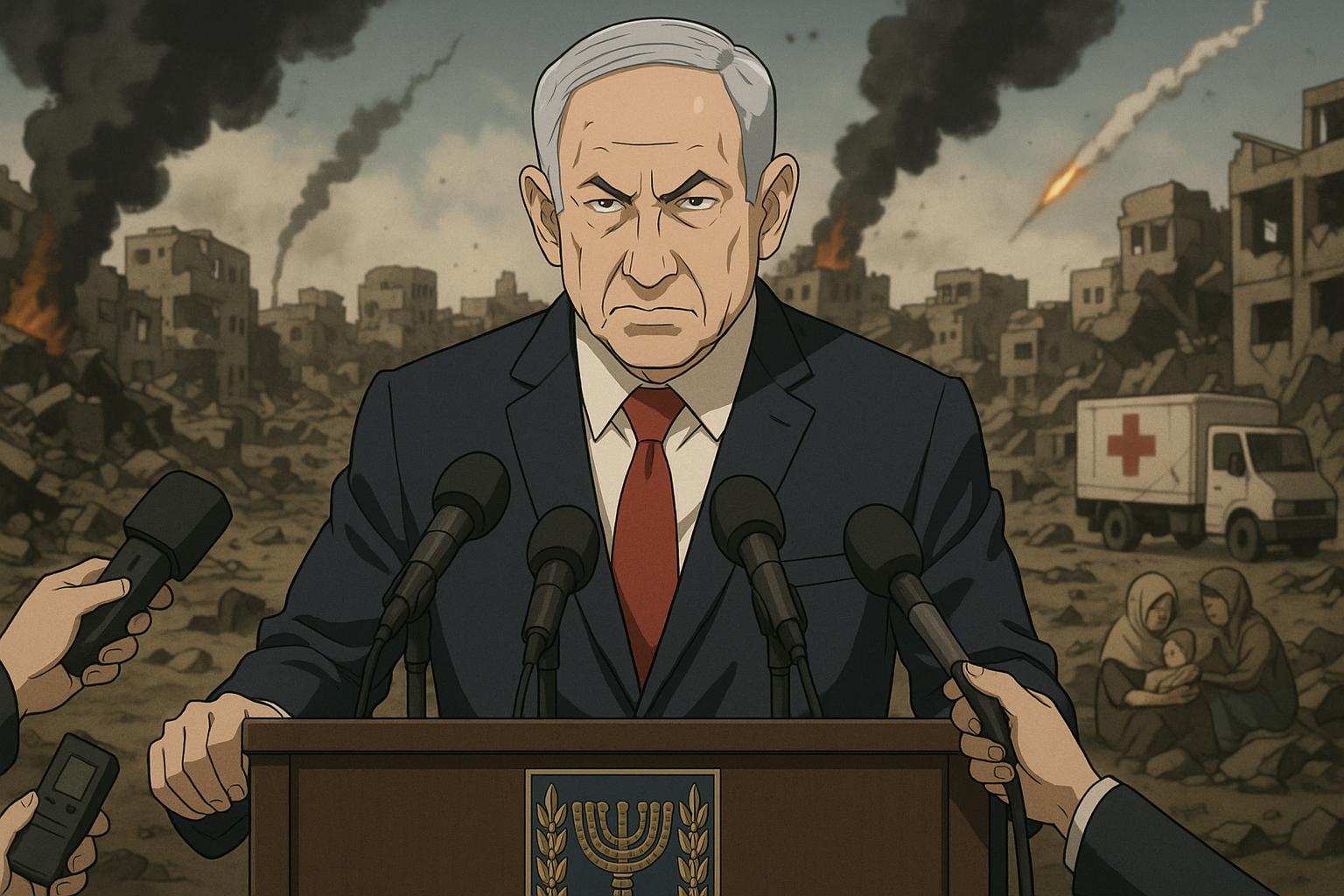Prime Minister Benjamin Netanyahu recently proclaimed that Israeli air strikes likely resulted in the death of Hamas’s Gaza chief, Mohammad Sinwar. The attacks targeted the European Hospital in southern Gaza and are part of a broader military initiative in the region, which has intensified following Hamas's deadly incursion into Israel on 7 October 2023. During a press conference, Netanyahu asserted, “We eliminated tens of thousands of [Hamas] terrorists since October 7. It appears we also eliminated Mohammad Sinwar,” indicating a committed approach to eradicating key figures in Hamas's leadership.
Netanyahu’s remarks come amidst significant international scrutiny and condemnation of Israel's ongoing military operations. Critics, including leaders from Britain, France, and Canada, have labelled the actions as "abhorrent" and "monstrous," especially given the escalating civilian death toll and the dire humanitarian crisis gripping the Gaza Strip. With nearly 54,000 Palestinians reportedly killed since the conflict began, many of whom are women and children, the situation has drawn widespread outrage. Humanitarian agencies have warned that the territory is on the brink of famine, with survivors resorting to desperate measures for sustenance, as highlighted by Palestinians like Mahmoud al-Haw, who lamented the scarcity of food for his family.
In response to Israel's military tactics, which some perceive as disproportionately aggressive, the UK government has signalled a possible shift in policy. Discussing the potential sanctions against Israeli far-right ministers sympathetic to settler violence and aggressive military measures, UK Foreign Minister David Lammy has yet to impose wider punitive measures on Israel itself. This approach illustrates a notable tension within countries traditionally aligned with Israel, as they grapple with their responses amid a horrific humanitarian crisis.
Despite broad political rhetoric condemning the violence, tangible actions have been limited thus far. While the UK has paused trade discussions and imposed targeted sanctions on specific settlers, broader punitive measures against Israeli leadership remain under consideration, yet unactioned. This has led to accusations of hypocrisy, especially when juxtaposed against international calls for accountability for alleged war crimes. Such criticisms echo throughout the global community, where leaders face the dual challenge of addressing domestic political pressures while maintaining relations with both Jewish and Muslim populations.
Netanyahu's declarations have not only highlighted military successes but also brought attention to growing tensions in occupied regions such as the West Bank, where clashes have intensified. Recent altercations involving Israeli soldiers and delegations of diplomats have underscored the risks in the area and highlighted the challenging environment in which both communities navigate ongoing violence and political strife.
Simultaneously, Israel has permitted limited humanitarian aid to flow into Gaza, allowing less than 250 trucks of food through after a lengthy blockade, marking the first significant movement of supplies in over two months. Nevertheless, logistical challenges, including ongoing combat and lawlessness, have hampered effective distribution, further exacerbating the humanitarian crisis.
The situation remains fluid as negotiations in Doha to secure the release of Israeli hostages continue to stall, reflecting the complexity of the conflict that has resulted in catastrophic loss of life and widespread displacement. The overwhelming majority of the Gaza Strip’s population now faces dire living conditions, with hospitals overwhelmed and basic necessities proved elusive due to the Israeli blockade—a strategy Israel claims aims to prevent aid from reaching Hamas.
As the international community watches, the ramifications of this conflict may ripple far beyond the borders of Israel and Gaza, prompting questions about future relations in an already fractured Middle East landscape and the possibility of drawing meaningful actions from global leaders confronting these challenges.
Source: Noah Wire Services
